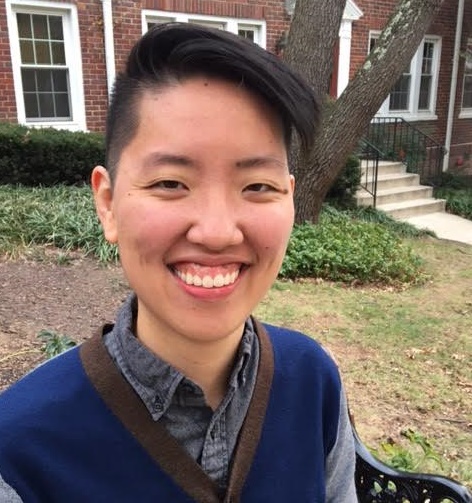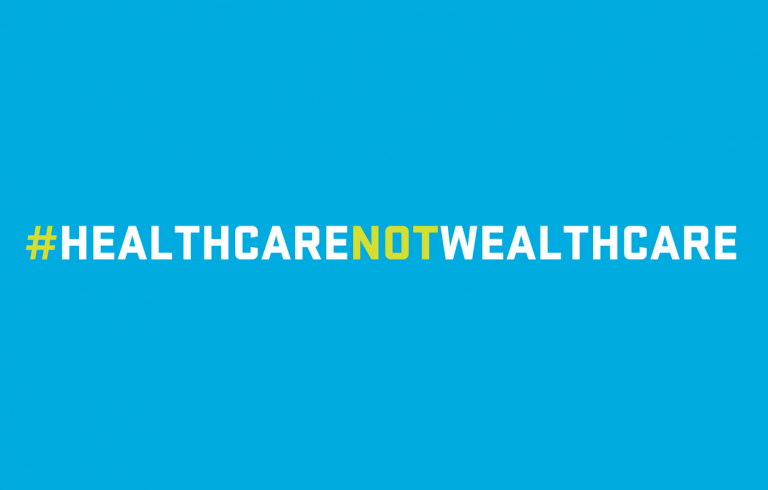The Personal is Political: Follow Up Conversations with My Parents
By Iimay Ho, Executive Director of Resource Generation
Since I published my last blog post sharing my family’s immigration story told with a class lens, I’ve had a lot of people ask me how my parents reacted. Through my time with Resource Generation I’ve spoken with my parents many times about class and their net financial wealth, mostly through the angle of giving and how class privilege and wealth has personally affected my life.
Sometimes we talk about their class journeys and how closely it is tied to their immigrant experience. But I had never publicly shared their immigration story in this way before. I felt the urgency to do so because I saw how much the rhetoric around immigration was classed (through coded language about which immigrants “contributed” or were “drains” on our economy) but there was little to no public discussion squarely centering class. I saw how stories like my family’s could be used as a class wedge against the undocumented poor and working class immigrants bearing the brunt of Trump’s anti-immigration policies, and knew that if I didn’t want our story told (and exploited) by others then I had to tell it myself.
So I took a deep breath and broke many cultural taboos by putting my Chinese family’s personal business out into the world. But I have a confession: I didn’t share it with my parents at first. In a burst of naivety and a teenage sensibility of “what my parents don’t know can’t hurt them,” I published my last blog post on our family immigration story without asking them first. I figured that since they’re not on the Resource Generation newsletter or on Facebook or Medium they wouldn’t see it. Even though all the information in the article were all things they told me themselves, I was nervous about how they would feel about it being so public.
As the article made its rounds through other members of the family I felt a growing sense of dread about my parents coming across the piece without me telling them about it first. With some nudging from my (far more ethical) partner, I finally came forward about a week after the article was published and emailed the piece to my parents. It sparked a week long conversation about class over phone, email, and family text chains. They were tough, illuminating, triggering, and ultimately essential conversations.
Through these conversations I learned stories about my parents’ lives that they had never shared before. I got more context about the political repression that drove my parents to leave Taiwan, learned about the economic instability of their childhoods, and heard their reflections on what it has meant to them to reach their 40 year anniversary in the United States.
We also had some tough moments about how they felt their struggle was erased through centering class privilege, how they didn’t want to be defined by their wealth, how they weren’t actually wealthy when compared to the new billionaire Chinese immigrants, and how they felt they worked hard and earned their wealth fair and square.
We grappled together, through the hurt and misunderstandings, grounded in our love for each other and seeking to understand each other’s perspectives. In our conversations I also heard reflected my own struggle to reconcile the contradictions of not being white but still having class privilege, my own qualms about centering wealth and class privilege in my story and being perceived negatively, and my own moments of “well I’m not really that rich.” I heard reflected the same contentious and ambiguous relationship to money that I have, heightened by the fact that they rapidly ascended the class ladder in their own lifetimes. I thought about how there isn’t a Resource Generation for them, and that because of the deep taboos and silence in our culture about class and money, there haven’t been many spaces, if any, for them to reflect on their own class identity. That this was a journey we’re on together.
When conversation turned to how their individual attitudes, hard work, and cultural values created their success, I acknowledged the truth behind those words and also sent them an article about the racial wealth divide. We were able to find common ground though our shared vision and values that everyone – not just those who can afford it – deserves to have dignified work, a safe home, access to quality education. and for their families to be healthy and thriving. We talked about fairness, equal opportunity, and institutional barriers that limit opportunity.
In the end these conversations brought us closer. I understood more about their past and how they think about their present, and they understood my work in a deeper way than ever before.
When just last week an article came out about how wealthy Chinese Americans are organizing against sanctuary cities, these talks with my family felt like an even more essential part of my work with Resource Generation. If meritocracy and the myth of deservingness isn’t challenged, it is all too easy to blame undocumented immigrants for “bad decisions,” forgetting the commonalities we share and how easily that could have been my parents themselves under a different set of circumstances.
We have urgent work to do to challenge classism in all of our communities. I’m grateful to have Resource Generation as a home and community that taught me how to have these kinds of conversations that acknowledge full humanity while pushing for different understanding and actions. I’m grateful to my parents for hanging in there with me and backing me and supporting me even when they felt attacked.
As young people with wealth we are uniquely positioned to do this work with our family members and friends. I share these reflections with you because I have a vision of Resource Generation being a community where young people with wealth and class privilege readily come forward to share their stories publicly to shift the narrative around wealth. But class and money stories are inextricably tied to family histories, and breaking the “don’t talk about our money” taboo can affect family dynamics. Because everyone’s relationship with their family is unique, I don’t have any hard and fast rules about when you should loop in your family about being public and when you shouldn’t. But what was helpful for me was prioritizing our relationship over being right, and remembering that transformation takes time: this was one moment in a story that we are weaving together for the rest of our lives.
—
As the first young person of color with wealth to become ED of RG, she will be sharing reflections on living at the intersection of a strange Venn diagram and fighting racism and classism in the Trump era. Read Iimay’s first post, One Wealthy Family’s Immigration Story Told Three Ways.

Iimay Ho is the Executive Director of Resource Generation. Resource Generation is the only organization in the U.S. organizing young people with wealth toward the equitable distribution of wealth, land, and power.


